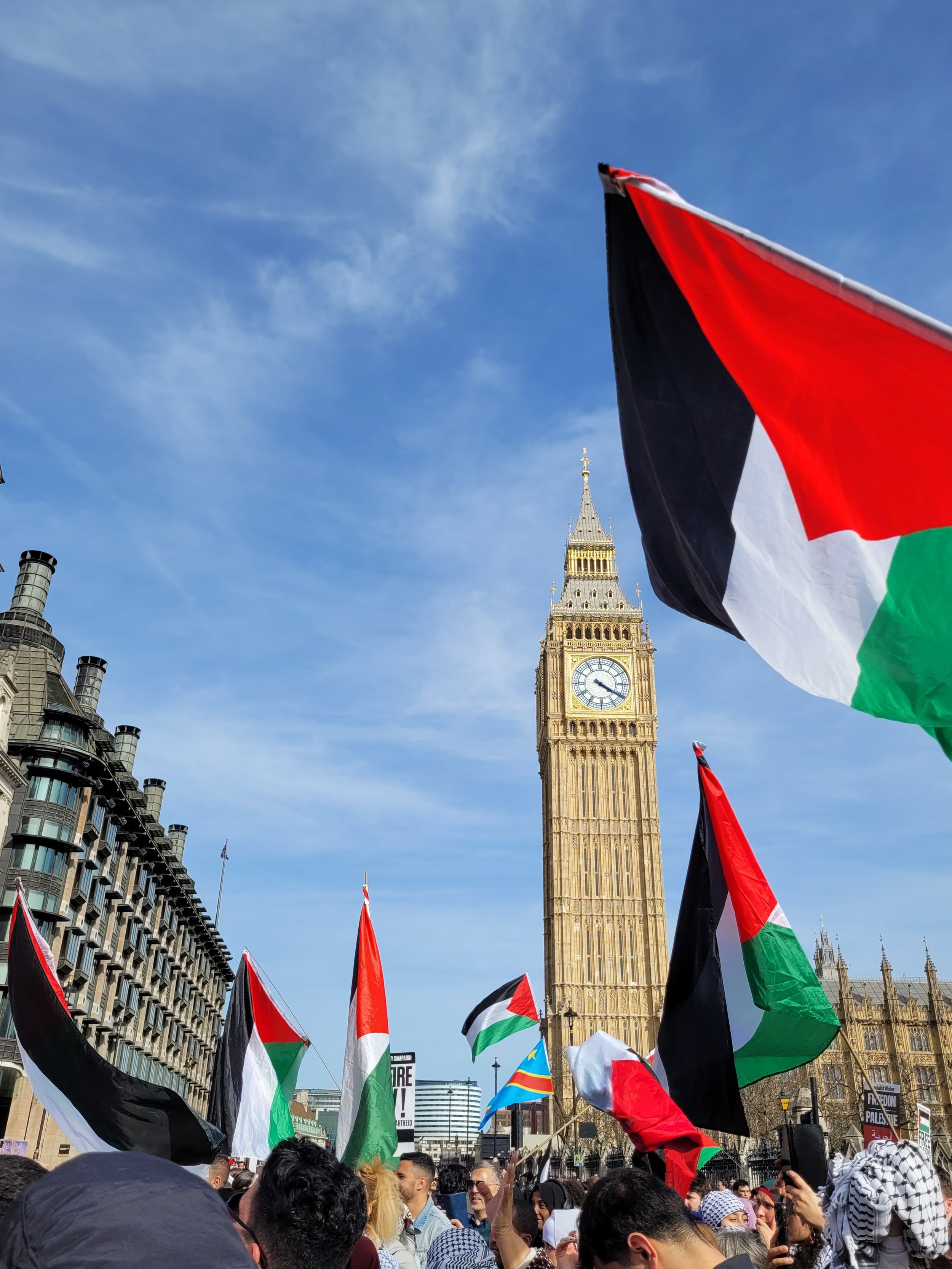The Impact of Israel’s War on Gaza on the Progressive Politics in the UK.
It’s undeniable that the genocide in Gaza is a defining moment in British political history. There has not been this large a cleavage between politicians and the population since perhaps the Iraq war. But the rifts within British society are also widening, resulting from concerted, state-led efforts to decontextualize and demonise the Palestinian struggle. With a backdrop of relentless censorship and media bias, the British public is being impelled to suspend its disbelief and actively deny the realities of Israel’s genocide, or, more importantly, deny that the genocide matters.
More than dehumanising Palestinians, the reaction in defence of Israel left both major parties compromising on what should be non-negotiable legal, moral, and humanitarian principles. The result has been a far weaker opposition, a worrying backslide of progressive politics, and a 335% increase in anti-Muslim hate cases.
While the far-right’s rise lines up with Western trends, Labour’s failure to hold the line has been disappointing at best and could be costly. Progressive voters’ faith in the party has wavered, and its Muslim vote has halved, with only 43% committed to voting Labour in the next elections. Only 13% of the British public supported continued Israeli military action, and 83% of Labour voters wanted an immediate ceasefire. Starmer’s failure to display principled leadership when it mattered most and explicitly oppose the genocide, and British complicity has shown him willing to court right-wing, Zionist, and Islamophobic elements under the guise of centrism.
Despite this, the public has organised itself. British cities have seen action taken against the genocide, and national demonstrations in London have seen hundreds of thousands marching peacefully, for peace, week after week. These marches have been condemned by both Labour and Tory leadership and have their numbers massively understated in reporting seeking to brand them as hateful. While these displays of public dissent have had little effect on policy, their strength lies in the ‘despite’. Despite government hostility and differing backgrounds, there has been a re-assemblance of committed progressives away from Labour’s central leadership. The refusal to be complicit in the genocide has seen at least 98 Labour councillors resigning, loss of front-benchers, and cancellations of over 23000 memberships. Small parties and CSOs have stepped into the breach.
British politics seems to be increasingly characterised by the alienation of the political class from the grassroots. Lammy’s peddling of ‘progressive realism’ undermines its own professed progressiveness and belated call for a ceasefire with increased militarism and unconditional support for the US. Labour mouthpieces like Progressive Britain continue to platform figures like Gary Kent, rejecting public dissent as ‘hard left’ populism. At this juncture, a speech on the 13th of April’s march rings true: “We are in need of Gaza; we are in need of delivering our humanity.” Israel’s war on Gaza is at the confluence of the climate crisis, global rise in fascism, catastrophic militarism, refugee crises, and the crumbling of international law; the position that any party takes on Gaza is a litmus test for their will to address any of these.




